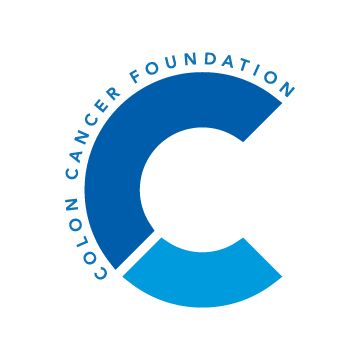
Raising Awareness With Education

Transcript:
Kristie L. Kahl: Can you tell us what the Colon Cancer Foundation is?
Cindy Borassi: We are a non-profit organization dedicated to a world without colorectal cancer. We work to achieve this through a few mechanisms. One is public awareness through widespread public awareness campaigns across the nation and the globe; advocacy for patients and caregivers; and through funding research, primarily young investigators that are hoping to identify new ways to treat the disease. Especially now at this time, we’re especially interested in focusing on the emerging trends of early-age onset colorectal cancer.
Kristie L. Kahl: The origination hosts the Early-Age Onset Colorectal Cancer Summit. Can you tell us more about this?
Cindy Borassi: We actually are coming into our sixth year of the summit. We’re very excited. The summit is the only event of its kind in the country, in fact, we think it’s the only event of its kind in the world. It’s a multidisciplinary event and it’s unique in that it not only brings the physicians together, it brings patients and caregivers into the room as well. We have insisted that from day one the patient and caregiver voices be heard. To be honest, the clinicians really do appreciate it. We start the event with the patients and give them the opportunity to tell the physicians what is going on from their perspective. It’s been a tremendous journey for us. So, we’re very excited for this year’s event.
Kristie L. Kahl: What is early-age onset disease and why is it important that we have meetings like this?
Cindy Borassi: Early onset disease, we are defining as anyone who has been touched by colorectal cancer. Our foundation and the purpose of this summit, we focus on anyone who has been diagnosed under the age of 55. Unfortunately, those numbers are approximately 27,000 Americans. It is actually more Americans than those who are diagnosed with cervical cancer, ovarian cancer, and Hodgkin lymphoma, which is surprising to many Americans.
Kristie L. Kahl: What were some highlights from last year?
Cindy Borassi: Last year, we focused in on the dimensions of the disease. We typically always give an overview of the incidence and mortality rates here in the US. We also gave an overview of what’s going on across the globe. Unfortunately, this is not isolated to the US, it is going on in other countries. It’s interesting that it’s happening in the countries that have higher incomes and are more westernized. We also laid out the agenda last year to identify the major gaps in how we tackle this issue. At this point, we are considering it to be a public health crisis, an epidemic, a public health control issue.
So, the four key areas that we feel we need to address are the fact that we are not really, at the primary care level, taking family health history, which would help us identify those that have a first-degree relative or family member with a hereditary syndrome, which would help us save approximately 20% of lives. The second key area that we discussed at last year’s summit is the fact that approximately 70%-80% of these cases are identified at late stage — stage 3 or 4. As we all know, that really winds up in a poor prognosis in these young adults.
So, the clinical alert is a document that we plan on disseminating as widely as possible to the primary care providers that essentially asks them to start taking the family health histories and alert them to the fact that the symptoms and signs are critical for them to be aware of at any age.
The last two gaps we identified are the fact that it’s very important to work with these young patients when they are diagnosed to make sure that their quality of life issues are addressed because they tend to be very different for these young patients than someone let’s say is diagnosed at the age of 50 or 60.
And finally, the major topic that everyone is interested in is understanding the reason why this is happening.
Kristie L. Kahl: And what is the focus of this year’s summit?
Cindy Borassi: This year’s focus is not going to change too much because we haven’t figured it all out yet. But I can tell you the emphasis is really going to be putting what we do know into action. It is really focused on galvanizing everyone who does attend, and even those who do not attend, into taking critical action steps to make a difference. We are in the process of putting together a concrete action plan around this issue and focusing in on one to two key steps in each of those gap areas to get all of the groups across the country to a consensus of what we can do together to make a difference.
Kristie L. Kahl: What are you looking forward to most?
Cindy Borassi: We’re very excited about this year’s meeting. We’re going to have two or three keynote lectures this year that focus on specific topics that are important to the patients and caregivers. Every year, we reach out to the community to see what is resonating with them this particular year. For example, survivorship is a very hot topic and we will bring in an expert in that area, probably someone from the nursing oncology area to discuss how we’re measuring up with regard to survivorship. We may get into something like circulating tumor DNA and how that may impact the ability to address the recurrence of colorectal cancer in these young patients, which is a hot topic within this community because they are so young when they face these issues.
Kristie L. Kahl: What are you hoping patients can take away from the summit?
Cindy Borassi: I am hopeful and quite certain that patients can take away from this year’s summit hope and the straight talk from the world’s leading experts in this area. While we don’t know exactly what is driving this extremely high incidence and mortality rates, I want them to know that we are doing our very best to do something about this. There are people dedicated to this issue of solving the problem.
Kristie L. Kahl: What do we have to be hopeful for in the future?
Cindy Borassi: We can be hopeful that there is a community of clinicians, advocacy organizations dedicated to ensuring that these patients and caregivers are taken care of, that their quality of life issues are addressed across the board equally. We are looking to make sure that we understand what is causing this. While it may take a long time, we are not going to give up. They can rest assured that we are not going to stop until we make sure that the primary care physician community knows about this issue.
Kristie L. Kahl: What is your biggest piece of advice for someone facing a colorectal cancer diagnosis?
Cindy Borassi: Be your own advocate. Trust your own instincts. Listen to your gut, no pun intended. That is really crucial and critical.
And to not be afraid to ask for help. There is help out there.
Transcript edited for clarity.




